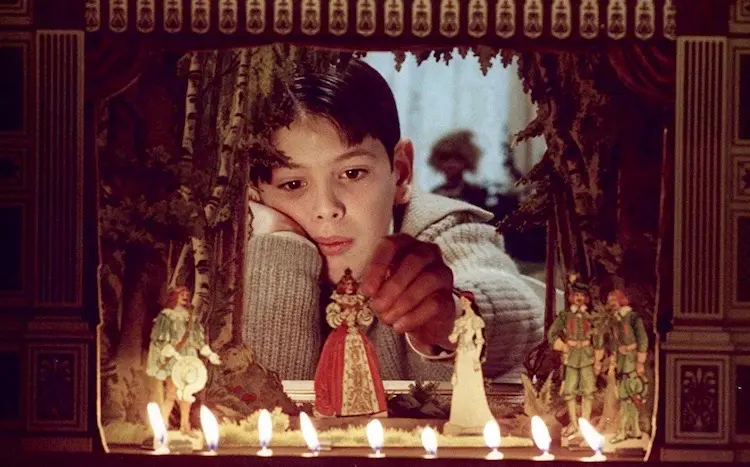
“Perhaps we give the people who come here a chance to forget for a while, for a few short moments, the harsh world outside. Our theater is a little room of orderliness, routine, care and love.” Oscar Ekdahl, Fanny and Alexander
Originally slated to be his farewell to film, Fanny and Alexander is Ingmar Bergman’s sprawling five-hour masterpiece that uses a local theatre and the large Swedish bourgeois family that runs it to explore the relationship between the creative world and the “real” world. (There is a three-hour version but you should watch the full version of the film.) This family theatre is a small operation that barely scrapes by; when the eponymous childrens’ father dies, their mother gives the theatre to the actors and marries an austere bishop, Edvard Vergerus, deeming it to be in their best interest. As Fanny, Alexander, and their mother wrest themselves from the pampered, safe environment of their extended family, they venture into what seems most true and real, the self-denying life of the bishop. But his claims of a fuller life soon ring hollow and they begin to yearn for the old ways. It requires their greatest powers of craftiness, learned in the theatre, to survive—and hopefully escape—into a fuller life.
At points throughout his career, Bergman was at odds with his occupation as a filmmaker and what the creative life meant—a theme illustrated most clearly in Persona. With Fanny, in the twilight of his life, he crafted a lasting affirmation of the power of art.
Bergman’s portrait of the Ekdahls and their extended theatrical family is hardly a rosy one. Their lives are fraught with unhappiness, denial, escapism, and disturbing, uncanny, spiritual secrets—as is the artistic process itself.
Yet there is no mistaking that Bergman wants us to prefer their color and creativity, even if it becomes self-indulgent at times. The creative world is not to be preferred because it is safe or easy. Rather, it proves that it can be uncompromising in its pursuit of the real—and, in the end, an expression of love. Indeed, from the opening scene in which Alexander—taking after his father—makes his own mini-play (with the words “Not for Pleasure Alone” engraved above) to the film’s conclusion, creativity and love at their best are intrinsically connected and mutually dependent. — Nathaniel Rogers (2010)
Arts & Faith Lists: